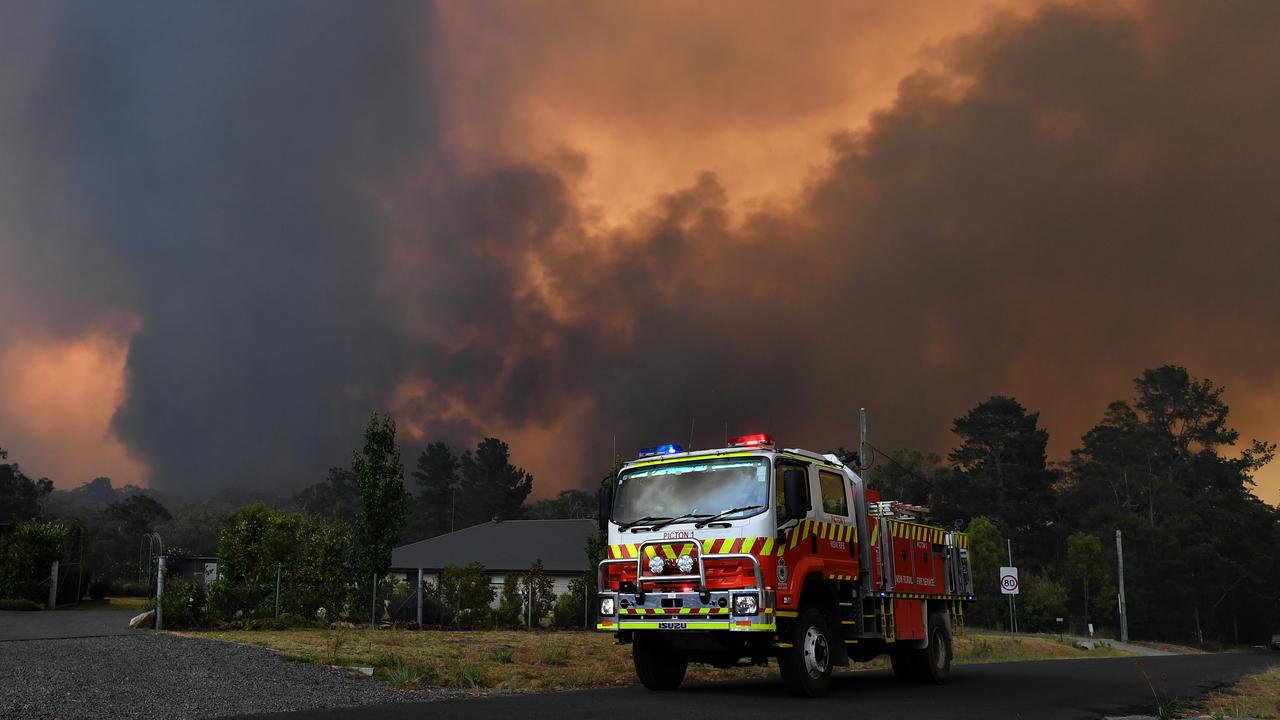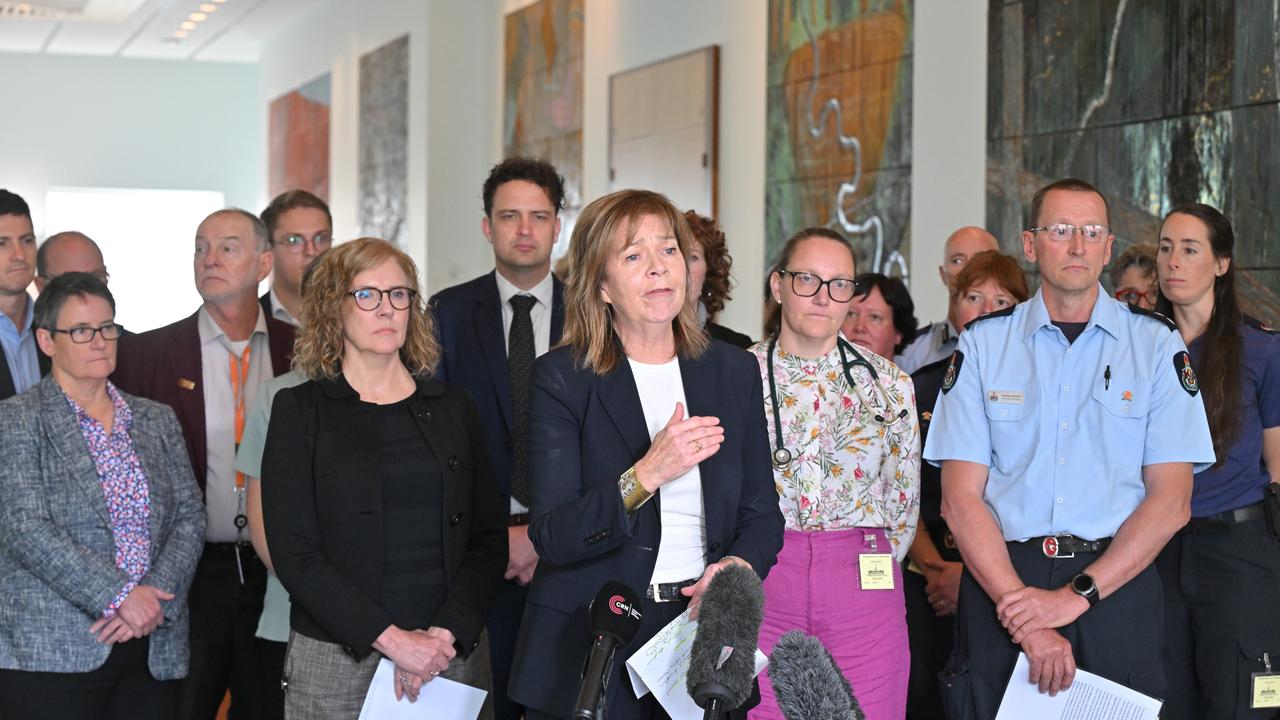
Extreme heat, flash floods and airborne diseases could all strike down Australian workers in huge numbers if climate change is not factored into workplace protections, a top union official warns.
Trillions of dollars and millions of workdays will also be lost in a climate-impacted future if safety laws do not keep pace with the warming planet, a report says.
A coalition of firefighters, nurses, teachers and union officials gathered in Parliament House on Tuesday calling for the federal government to acknowledge the impacts of climate change on workers across the country.
Climate-change harms have never been mentioned at joint meetings of workplace health and safety ministers, Australian Council of Trade Unions president Michele O'Neil said.
"We've got a hole in the middle of our work health and safety regulations, and that hole is growing, and it is the climate crisis," she said.
The National Climate Risk Assessment published in September warned working outside would be untenable and heat deaths would increase dramatically if global warming was not contained.
"If we get up to 2.8 degrees heat increase in our country, then we will see 45 days a year where it is too hot for workers to work outside," Ms O'Neil said.
With one-in-three Australians working outside, the total loss would represent 2.7 million days of work lost each year and $4.2 trillion lost in economic activity, the union leader said.

The call for climate action comes as the Nationals reject any policy commitment to net-zero carbon emissions and the Liberals decide whether to align with their junior coalition partner, or strike out on their own.
Heat-related deaths could spike by more than 400 per cent in Sydney, Perth and Darwin, according to a report released by the union peak body.
Natural disasters fuelled by climate change also threatens worker safety, with ACT firefighter Andrew Johnson putting the frequency of bushfires in sharp focus.
Mr Johnson was part of the emergency response to both the catastrophic Canberra bushfires in 2003 and the Black Summer bushfires of 2019-20.
"Both events were described as once-in-100-year fires," he said.
"This highlights a need for national coordination to better plan for and react to potentially catastrophic climate change-related events."

Sweeping weather events like thunderstorm asthma are also becoming more common and debilitating thousands of people at once, stretching health systems to the limit.
Victoria's 2016 asthma outbreak forced doctors, nurses and paramedics into overtime and extra shifts as pharmacies ran dry of medication and nearly 10,000 people presented to hospitals.
"The 2016 event was a really good event to highlight how underprepared we were and how we just can't cope with those large volume events," Victorian nurse Sigrid Pitkin said.







